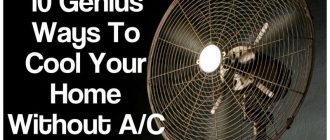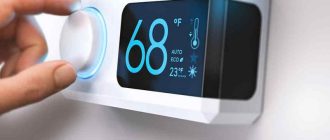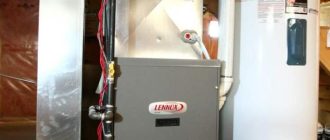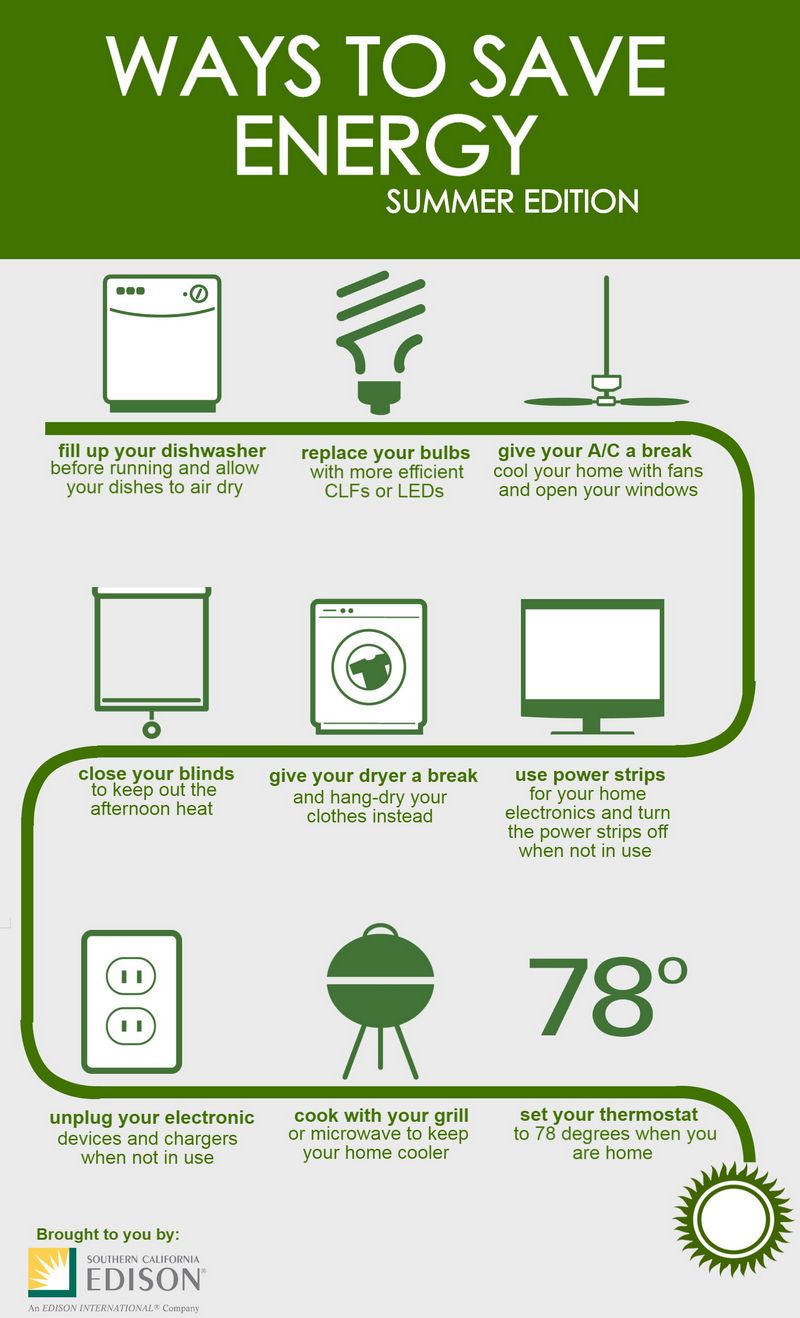
10 Simple Ways to Save Energy and Money This Summer
As the summer months approach, it’s important to find ways to stay cool and comfortable without breaking the bank. Luckily, there are many simple steps you can take to save energy and reduce your cooling costs. Here are 10 easy tips to help you stay cool and save money this summer:
- Use a programmable thermostat: Set your thermostat to adjust the temperature when you’re not home, so you’re not wasting energy cooling an empty house.
- Close your curtains: Keep the sun’s heat out by closing your curtains during the hottest part of the day.
- Seal air leaks: Inspect your windows and doors for any drafts and seal them to prevent cool air from escaping.
- Ceiling fans: Utilize ceiling fans to help circulate air and create a cooling breeze.
- Keep vents clear: Make sure your air vents are not blocked by furniture or other objects, as this can restrict airflow and reduce cooling efficiency.
- Unplug electronics: When not in use, unplug electronics and appliances to prevent them from using unnecessary energy and generating heat.
- Grill outdoors: Instead of using your oven or stovetop, take advantage of the warm weather and grill your meals outside to reduce heat buildup in your home.
- Use energy-efficient lighting: Replace traditional incandescent light bulbs with energy-efficient LED bulbs to reduce heat output and lower energy consumption.
- Insulate your home: Ensure your home is properly insulated to keep cool air in and hot air out.
- Stay hydrated: Drink plenty of water to stay hydrated and cool from the inside out.
“By following these 10 easy tips, you can beat the summer heat while also saving on your energy bills. So, start implementing these changes today and enjoy a comfortable and cost-effective summer!”
Why Saving Energy is Important
1. Environmental Impact
Saving energy helps reduce the negative impact on the environment. When we use less energy, we decrease the demand for fossil fuels such as coal, oil, and gas which are major sources of greenhouse gas emissions and air pollution.
2. Climate Change Mitigation
By saving energy, we contribute to mitigating climate change. The less energy we consume, the fewer greenhouse gases are released into the atmosphere, helping to reduce global warming and its detrimental effects on the planet.
3. Conservation of Natural Resources
Saving energy also means conserving natural resources. Many energy sources, such as coal and oil, are non-renewable and finite. By reducing our energy consumption, we can extend the lifespan of these resources and ensure they are available for future generations.
4. Cost Savings
One of the most significant benefits of saving energy is the potential cost savings. By using energy-efficient appliances, insulating our homes, and reducing energy waste, we can lower our energy bills and have more money in our pockets for other purposes.
5. Energy Independence
Reducing our reliance on fossil fuels and using more clean and renewable sources of energy can help achieve energy independence. This makes countries less vulnerable to fluctuations in fuel prices and geopolitical conflicts related to energy resources.
6. Health Benefits
Using less energy can also have positive health impacts. Burning fossil fuels for energy production releases pollutants that contribute to respiratory problems, heart disease, and other health issues. By saving energy, we can improve air quality and promote better overall health.
7. Job Creation
The transition to a more sustainable energy future requires the development and deployment of renewable energy technologies. By promoting energy conservation and investment in clean energy sources, we can create new job opportunities and boost economic growth.
8. Energy Efficiency
Saving energy encourages the adoption of energy-efficient technologies and practices. This not only reduces energy consumption but also spurs innovation and drives the development of more efficient and environmentally friendly solutions for various sectors.
9. Leadership and Responsibility
By making a conscious effort to save energy, we demonstrate leadership and responsibility towards future generations. It sets a positive example for others and inspires collective action to address climate change and protect the planet.
10. Sustainable Future
Saving energy is a crucial step towards building a sustainable future. It allows us to reduce our ecological footprint, preserve natural resources, and ensure a livable and healthy planet for present and future generations.
The Impact of High Energy Costs
High energy costs can have a significant impact on your monthly budget. From rising electricity bills to increased expenses for cooling your home, it’s important to find ways to save energy and cut costs. By implementing energy-saving measures, you can not only save money but also reduce your carbon footprint and contribute to a healthier environment.
Why should you be concerned about high energy costs?
- High energy costs can strain your monthly budget and limit your ability to spend on other important needs or desires.
- Excessive energy use leads to increased carbon emissions, contributing to global warming and climate change.
- Electricity generation from fossil fuels can have harmful environmental effects, including air pollution and water contamination.
How can you make a difference?
- Upgrade to energy-efficient appliances and electronics, which consume less electricity and help reduce your energy bills.
- Use energy-saving light bulbs, such as LEDs, instead of traditional incandescent bulbs. They last longer and require less electricity.
- Seal air leaks in your home by insulating doors, windows, and cracks to prevent cool air from escaping and hot air from entering.
- Install a programmable thermostat to regulate your home’s temperature, allowing you to use less energy when you’re away or asleep.
- Unplug electronics and appliances when not in use to avoid “energy vampires” that continue to consume electricity even on standby mode.
- Consider using renewable energy sources, like solar panels, to generate electricity and reduce your reliance on fossil fuels.
- Plant trees and shrubs around your home to provide shade and reduce the need for air conditioning, ultimately saving energy.
How can we help?
We understand the impact of high energy costs on your life and the environment, which is why we offer a wide range of energy-saving products and services to help you reduce your energy usage and save money. Our team of experts can assess your energy needs and provide customized solutions that suit your budget and lifestyle. Don’t let high energy costs hold you back – contact us today to start saving energy and cutting costs!
| Energy-efficient appliances | Lower energy consumption and reduced utility bills |
| Home energy audits | Identify areas of energy wastage and recommend solutions |
| Solar panel installation | Clean, renewable energy and potential savings on electricity bills |
| Weatherization services | Improved insulation, reduced air leaks, and better energy efficiency |
Adjust Your Thermostat
Saving energy and cutting costs during the summer is easy when you adjust your thermostat smartly. Here are some tips to help you make the most of your thermostat settings:
- Set your thermostat to a higher temperature: Raise your thermostat by a few degrees when you’re not at home or during the night when you’re sleeping. This will help reduce unnecessary cooling and save energy.
- Use a programmable thermostat: Invest in a programmable thermostat that allows you to set different temperature levels for different times of the day. You can program it to automatically adjust the temperature when you’re away or asleep, ensuring energy efficiency.
- Consider using a fan: Instead of relying solely on air conditioning, use a fan to circulate cool air throughout the room. This can help you feel comfortable even at higher temperatures, allowing you to set your thermostat a few degrees higher.
- Avoid frequent temperature adjustments: Constantly changing your thermostat settings can lead to unnecessary energy consumption. Try to find a temperature that is comfortable for you and stick to it whenever possible.
- Maintain your thermostat: Clean your thermostat regularly to ensure it works efficiently. Dust and debris can affect its performance, leading to inaccurate temperature readings and higher energy usage.
- Utilize natural ventilation: Take advantage of cool evenings by opening windows and allowing fresh air to circulate through your home. This can help cool your space without using energy or running the air conditioner.
- Consider investing in a smart thermostat: Smart thermostats can learn your preferences and adjust the temperature accordingly. They can also be controlled remotely through a smartphone app, allowing you to set the temperature before you arrive home.
- Close blinds and curtains: Blocking out direct sunlight can help reduce heat gain in your home, making it easier for your air conditioner to cool your space. Use blinds or curtains to shade your windows during the hottest parts of the day.
- Keep heat-producing appliances away from the thermostat: Appliances such as lamps and TVs can generate heat, causing your thermostat to run longer than needed. Keep these items away from your thermostat to prevent unnecessary cooling.
- Consider upgrading to an energy-efficient air conditioner: If your current air conditioner is old and inefficient, it may be worth investing in a newer model that is designed to save energy. Look for units with a high SEER (Seasonal Energy Efficiency Ratio) rating for optimal energy savings.
By adjusting your thermostat and following these simple tips, you can save energy, cut costs, and stay cool during the summer months. Start implementing these changes today and enjoy the benefits of a more energy-efficient home.
Utilize Natural Ventilation
One of the simplest and most effective ways to save energy and cut costs during the summer is to make use of natural ventilation. By bringing fresh air into your home without the need for air conditioning, you can reduce your energy consumption and lower your utility bills.
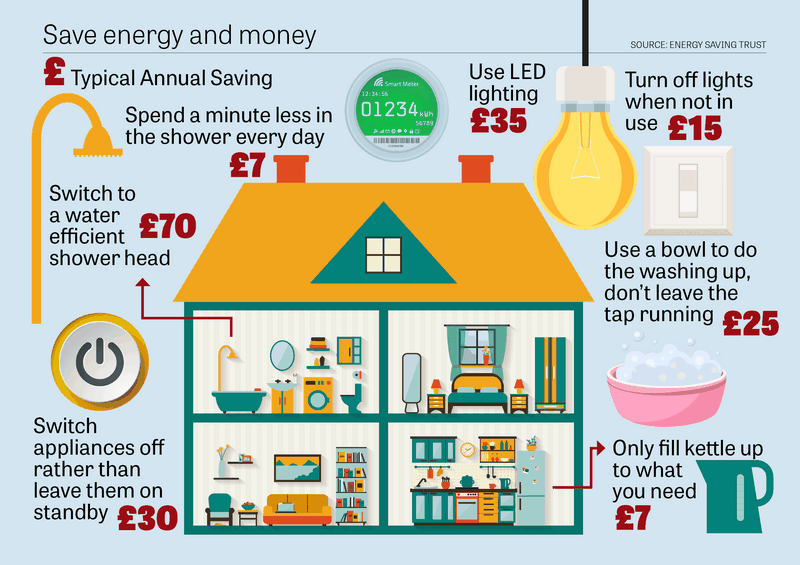
Here are some tips to maximize natural ventilation in your home:
- Open windows and doors during cooler times of the day, such as early morning and late evening, when the temperature is lower.
- Use window coverings, like blinds or curtains, to control the amount of sunlight and heat entering your home.
- Create cross ventilation by opening windows on opposite sides of your home to allow air to flow freely.
- Install window fans or ceiling fans to improve air circulation and keep the air moving.
- Consider adding screens to your windows and doors to keep bugs out while still allowing fresh air in.
By utilizing natural ventilation techniques, you can take advantage of the cooling effects of nature and reduce your reliance on air conditioning, ultimately saving energy and cutting costs.
Seal Air Leaks
One of the easiest and most effective ways to save energy and cut costs during the summer is by sealing air leaks in your home. Air leaks can allow cool air to escape and hot air to enter, making your cooling system work harder and use more energy.
Here are some tips to help you seal air leaks in your home:
- Check for drafts: On a windy day, walk around your home and feel for any drafts around windows, doors, and electrical outlets.
- Seal windows and doors: Use weatherstripping or caulk to seal gaps around windows and doors. You can also use draft stoppers for the bottom of doors.
- Insulate electrical outlets: Install foam gaskets behind electrical outlet covers to prevent air leaks.
- Seal gaps in the attic: Look for any gaps in the attic where air could be leaking, such as around pipes, vents, and chimneys. Use caulk or foam insulation to seal these gaps.
- Inspect ductwork: Check the ductwork in your home for any leaks or gaps. Use foil tape or mastic sealant to seal these leaks.
By sealing air leaks in your home, you can improve the efficiency of your cooling system and reduce energy waste. This will not only help you save money on your energy bills, but also contribute to a more sustainable future.
Use Energy-Efficient Lighting
Did you know that lighting accounts for a significant portion of your energy bill? By switching to energy-efficient lighting options, you can save money while also helping the environment. Here are some tips to help you make the switch:
- Replace traditional incandescent light bulbs with energy-efficient LED light bulbs. LED bulbs use up to 80% less energy and last much longer than traditional bulbs.
- Consider using compact fluorescent bulbs (CFLs) in areas where you need bright, efficient lighting. These bulbs use up to 75% less energy than incandescent bulbs and can last up to 10 times longer.
- Install motion sensor lights in rooms or areas that are frequently unoccupied. These lights automatically turn on when someone enters the room and turn off when no one is present, saving energy and money.
- Make use of natural light by opening curtains and blinds during the day. This can help reduce the need for artificial lighting and save energy.
By using energy-efficient lighting, you can significantly reduce your energy consumption and cut down on your energy costs, all while brightening up your home.
Unplug Unused Electronics
One simple way to save energy and reduce costs during the summer is to unplug unused electronics. Many devices continue to draw power even when they are turned off or in standby mode, also known as vampire power.
To effectively unplug unused electronics:
- Identify which devices are not needed and are consuming energy in standby mode.
- Unplug these devices from the power source when they are not in use.
- Consider using power strips with an on/off switch to easily cut off the power supply to multiple devices at once.
- Remember to unplug chargers when they are not actively charging a device.
By unplugging unused electronics, you can significantly reduce your energy consumption and lower your electricity bills. It’s a simple habit that can make a big impact!
Optimize Your Cooling System
If you want to save energy and cut costs during the summer, optimizing your cooling system is essential. Here are some tips to help you get started:
- Clean or replace air filters regularly: Dirty filters can obstruct airflow and make your cooling system work harder. Clean or replace them once a month to ensure efficient operation.
- Keep blinds and curtains closed: Blocking out direct sunlight can prevent your home from heating up, reducing the workload on your cooling system.
- Set your thermostat to a higher temperature: Even a small adjustment can make a big difference. Try setting it to 78°F (25.5°C) or higher during the summer months.
- Use ceiling fans: Ceiling fans can help circulate cool air and make the room feel more comfortable without relying solely on your cooling system.
- Seal air leaks: Inspect your doors and windows for any gaps or cracks that could be letting cool air escape. Weatherstripping or caulking can help seal these leaks.
- Invest in a programmable thermostat: This allows you to set schedules and adjust temperatures automatically, optimizing energy usage when you’re not at home.
- Maintain your cooling system: Schedule regular maintenance, such as cleaning coils and checking refrigerant levels, to ensure your cooling system is operating efficiently.
- Use natural ventilation: Open windows and doors during cooler parts of the day to let in fresh air and reduce reliance on your cooling system.
- Avoid using heat-generating appliances: Appliances like ovens, dryers, and stoves generate heat, which can increase the workload on your cooling system. Try to use them during cooler times of the day.
- Consider upgrading to an energy-efficient cooling system: If your current system is old or inefficient, upgrading to a newer, more energy-efficient model can significantly reduce your energy consumption and costs.
By optimizing your cooling system and implementing these tips, you can enjoy a cooler home while saving energy and cutting costs during the summer.
Keep Your Air Filters Clean
One of the easiest and most important ways to save energy and cut costs during the summer is to keep your air filters clean. Dirty air filters can restrict airflow, making your air conditioner work harder and consume more energy.
To keep your air filters clean, follow these simple steps:
- Regularly check your air filters. It’s recommended to check your air filters at least once a month. If you notice that they are dirty or clogged, it’s time to clean or replace them.
- Clean or replace the air filters. If your air filters are washable, you can clean them using a vacuum cleaner or by rinsing them with water. Make sure to let them dry completely before putting them back. If your filters are disposable, simply replace them with new ones.
- Consider using high-efficiency air filters. High-efficiency air filters can capture more dust, pollen, and other particles, improving indoor air quality and reducing the strain on your air conditioner. Look for filters with a MERV rating of 8 or higher.
By keeping your air filters clean, you can improve the efficiency of your air conditioner and save money on energy costs.
Minimize Heat from Appliances
One of the easiest ways to save energy and cut costs during the summer is by minimizing the heat generated by your appliances. Here are some tips:
- Use your appliances during off-peak hours when the outside temperature is cooler.
- Avoid using heat-generating appliances, such as ovens, washing machines, and dryers, during the hottest times of the day.
- Instead of using the oven, consider using a microwave, toaster oven, or outdoor grill for cooking.
- Use a dishwasher instead of hand-washing dishes, as it uses less hot water and generates less heat.
- Keep your refrigerator and freezer well stocked, as a full fridge is more energy-efficient than an empty one.
By implementing these simple tips, you can reduce the heat generated by your appliances and keep your home cooler during the summer months while saving energy and cutting costs.
Utilize Window Treatments
One effective way to save energy during the summer is by utilizing window treatments. These treatments can help to keep your home cool and comfortable while also reducing energy costs.
Here are some tips on how to utilize window treatments:
- Install blinds or shades: Blinds or shades can be adjusted to block out direct sunlight during the hottest parts of the day. This can help to reduce heat gain in your home and keep it cooler.
- Use curtains or drapes: Curtains or drapes can provide an additional layer of insulation for your windows. Choose light-colored, reflective curtains to deflect sunlight and heat away from your home.
- Add window film: Applying window film can help to block out harmful UV rays and reduce heat transfer through your windows. Look for energy-efficient window films that are specifically designed for summer use.
- Seal gaps and cracks: Ensure that your windows are properly sealed to prevent cool air from escaping and hot air from entering your home. Use weatherstripping or caulking to seal any gaps or cracks around your windows.
By utilizing these window treatments, you can effectively reduce the amount of heat and sunlight that enters your home, resulting in lower energy costs and a more comfortable living environment during the summer months.
Install a Programmable Thermostat
One of the easiest ways to save energy and cut costs during the summer is by installing a programmable thermostat.
A programmable thermostat allows you to set different temperature levels for different times of the day or week, so you can automatically adjust the temperature when you’re not at home or when you’re sleeping. This means you can have your air conditioning or cooling system work less when you don’t need it, and save energy in the process.
Here are some benefits of installing a programmable thermostat:
- Energy savings: By being able to program and control your thermostat, you can optimize your energy usage and save up to 10-15% on your energy bills.
- Cost savings: Using less energy means lower energy bills, helping you cut costs in the long run.
- Convenience: With a programmable thermostat, you can set your desired temperature and forget about it. The system will automatically adjust the temperature based on your settings.
- Comfort: You can pre-cool your home before you arrive or wake up, ensuring a comfortable living environment.
- Environmentally friendly: Reduced energy usage means a smaller carbon footprint, helping in the fight against climate change.
By taking advantage of a programmable thermostat, you can easily save energy and cut costs during the summer months. It’s a simple and effective way to make your home more energy efficient and environmentally friendly.
Benefits of Saving Energy
There are many advantages to saving energy in your home or business. Not only does it help reduce your monthly bills, but it also has a positive impact on the environment. Here are some key benefits of saving energy:
- Lower energy bills: By using energy-efficient appliances and adopting energy-saving habits, you can significantly reduce your monthly energy expenses.
- Environmental protection: Conserving energy helps reduce greenhouse gas emissions, which contribute to climate change. By using less energy, you are actively helping to protect the environment.
- Increased comfort: Energy-efficient appliances and properly insulated homes can help maintain a comfortable indoor temperature, regardless of the weather outside. This leads to a more relaxing and enjoyable living or working environment.
- Reduced reliance on fossil fuels: The more energy you save, the less you depend on non-renewable fossil fuels like coal, oil, and natural gas. This helps alleviate the demand for these resources and promotes a more sustainable energy future.
- Improved air quality: Generating energy from fossil fuels produces air pollutants that can have harmful effects on human health. By saving energy, you contribute to reducing air pollution and improving the quality of the air we breathe.
- Long-term savings: Investing in energy-efficient appliances and improvements for your home or business can result in long-term savings. Although the initial costs may be higher, the reduced energy consumption can lead to significant savings over time.
By understanding the benefits of saving energy and implementing energy-saving practices, you can make a positive impact on your finances, the environment, and future generations. Start saving energy today!
Take Action Today
Are you tired of high energy bills during the summer months? Take action today and start saving energy and cutting costs! Here are 10 easy tips to get you started:
- Adjust your thermostat: Raise the temperature by a few degrees when you’re not at home and at night to save on cooling costs.
- Seal air leaks: Use caulk or weatherstripping to seal any gaps or cracks around windows and doors to prevent cool air from escaping.
- Utilize natural light: Make use of natural light during the day by opening curtains or blinds instead of using artificial lighting.
- Switch to LED bulbs: Replace your incandescent bulbs with energy-efficient LED bulbs that use less energy and last longer.
- Use ceiling fans: Use ceiling fans to help circulate cool air throughout the room and reduce the need for air conditioning.
- Unplug electronics: Unplug or power down electronics and appliances when not in use to avoid standby power consumption.
- Keep vents clear: Make sure furniture or other objects are not blocking the vents to ensure proper air circulation.
- Plant shade trees: Plant trees strategically around your home to provide shade and reduce the amount of direct sunlight entering your home.
- Use a programmable thermostat: Set a schedule for your thermostat to adjust the temperature according to your daily routine.
- Regularly maintain your AC: Clean or replace air filters regularly and schedule professional maintenance for your air conditioning system to keep it running efficiently.
By implementing these simple tips, you can make a significant difference in your energy consumption and save money on your monthly bills. Take action today and start enjoying a more energy-efficient and cost-effective summer!
Question-answer:
How can ceiling fans help save energy during the summer?
Ceiling fans can help save energy during the summer by providing a cool breeze that can make you feel more comfortable without the need for air conditioning. By using ceiling fans, you can raise the temperature on your thermostat by a few degrees, reducing the load on your air conditioner and saving energy.
What is natural ventilation and how can it help save energy during the summer?
Natural ventilation is the process of using outside air to cool your home by opening windows and doors. By opening windows and doors in the evening when it cools down, you can bring in fresh air and allow the hot air to escape, reducing the need for artificial cooling. This can help save energy and cut costs during the summer.
Are there any specific appliances or light bulbs that can help save energy during the summer?
Yes, there are energy-efficient appliances and light bulbs that can help save energy during the summer. Look for appliances with an Energy Star label, as they are designed to be more energy efficient. Switching to LED light bulbs can also help save energy, as they use less electricity and produce less heat.
How much can I save on my energy costs by following these tips?
The amount you can save on your energy costs by following these tips will vary depending on factors such as the size of your home, the efficiency of your appliances, and your local energy rates. However, implementing these tips can help reduce your energy usage and potentially save you a significant amount on your monthly energy bills.

